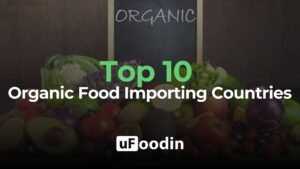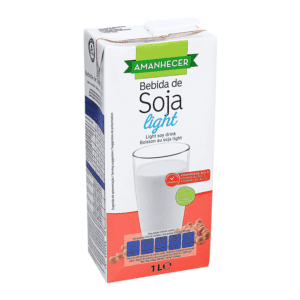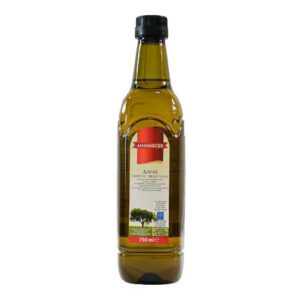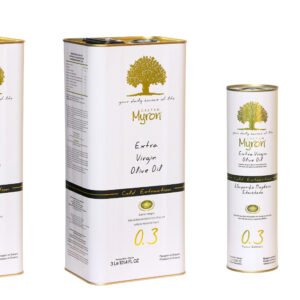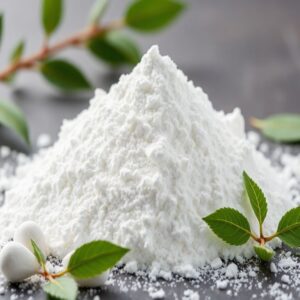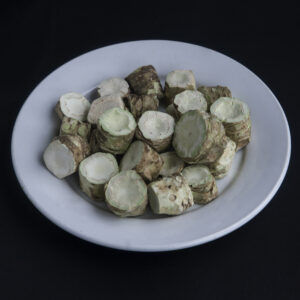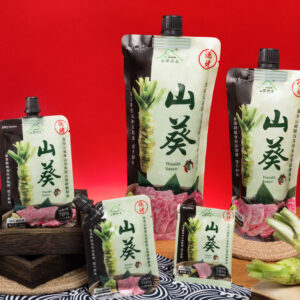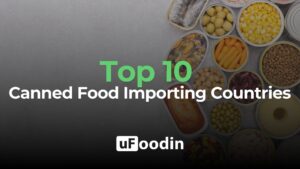
Top 10 Sugar-Producing Companies
Sugar is one of the most ubiquitous commodities in the global food and beverage industry, serving as a cornerstone ingredient in everything from confectioneries and beverages to pharmaceuticals and biofuels. In 2023, the global sugar market reached a value of $63 billion, with production volumes exceeding 192 million metric tons. The market is projected to grow at a CAGR of 1.4%, driven by expanding demand in emerging markets, increasing industrial applications, and its pivotal role in renewable energy through bioethanol production.
Asia and South America dominate the global sugar production landscape, with Brazil leading the way, accounting for over 20% of total output. Meanwhile, countries like India, Thailand, and China play critical roles in meeting global demand. Europe and North America are significant contributors, especially in beet sugar production, which accounts for nearly 20% of global sugar supplies.
Beyond its culinary applications, sugar is integral to the production of ethanol, bioplastics, and other environmentally sustainable products. However, the sugar industry faces mounting challenges, including climate variability, rising health awareness among consumers, and fluctuating market dynamics. To address these issues, leading sugar companies are investing in advanced technologies, sustainable farming practices, and diversified product portfolios.
This article highlights the Top 10 Sugar-Producing Companies, exploring their contributions, innovations, and strategies to thrive in an ever-changing global market.

- Südzucker AG
- Headquarters: Mannheim, Germany
- Why It Stands Out: As Europe’s largest sugar producer, Südzucker AG operates across 25 countries and is a leader in beet sugar production.
- Key Innovations: Investments in sustainable beet farming, low-calorie sweeteners, and bioethanol production.
- Cosan S.A.
- Headquarters: São Paulo, Brazil
- Why It Stands Out: A leading sugar and ethanol producer, Cosan plays a critical role in Brazil’s renewable energy sector, converting sugarcane byproducts into bioenergy.
- Key Innovations: Advanced cogeneration facilities and expansion into global biofuel markets.
- AB Sugar
- Headquarters: Cambridgeshire, England
- Why It Stands Out: A subsidiary of Associated British Foods, AB Sugar operates 27 facilities across 10 countries, producing approximately 4.5 million metric tons of sugar annually.
- Key Innovations: Focus on carbon footprint reduction and water-saving technologies in sugar production.
- Wilmar International
- Headquarters: Singapore
- Why It Stands Out: Wilmar is a global leader in sugar trading and refining, with operations in Asia, Africa, and Australia. Its diverse portfolio includes refined sugars, syrups, and industrial-grade sweeteners.
- Key Innovations: Advanced refining processes and digital tools for supply chain optimization.
- Tereos Group
- Headquarters: Lille, France
- Why It Stands Out: Specializing in sugar beets, Tereos is one of the largest sugar producers in the EU, with a strong presence in bioethanol and starch production.
- Key Innovations: Research into plant-based proteins and renewable energy projects utilizing sugar byproducts.
- Raízen
- Headquarters: São Paulo, Brazil
- Why It Stands Out: A joint venture between Cosan and Shell, Raízen is a major player in sugarcane-based sugar and ethanol production, focusing on sustainability.
- Key Innovations: Development of second-generation biofuels and energy-efficient sugar mills.
- Mitr Phol Group
- Headquarters: Bangkok, Thailand
- Why It Stands Out: Mitr Phol is Asia’s largest sugar producer, exporting to over 30 countries. It emphasizes innovation in sugarcane farming and processing.
- Key Innovations: Implementation of smart farming techniques and renewable energy initiatives.
- Nordzucker AG
- Headquarters: Braunschweig, Germany
- Why It Stands Out: With a focus on beet sugar, Nordzucker operates in Europe and Australia, supplying high-quality sugar products to diverse markets.
- Key Innovations: Reduction of carbon emissions through energy-efficient production methods and investments in bioenergy.
- EID Parry
- Headquarters: Chennai, India
- Why It Stands Out: A prominent player in India’s sugar industry, EID Parry specializes in sugar, bioethanol, and cogeneration of power from bagasse.
- Key Innovations: Expansion into organic sugar and development of value-added byproducts.
- Guangxi Guitang Group
- Headquarters: Guangxi, China
- Why It Stands Out: Guangxi Guitang is a leading sugar producer in China, integrating sugar production with paper and alcohol manufacturing.
- Key Innovations: Circular economy practices, including the utilization of byproducts like bagasse for paper production.
Major Trends in the Sugar Industry
- Diversification into Biofuels and Energy
With the global focus on renewable energy, sugar producers are increasingly investing in bioethanol and cogeneration projects. For example, Brazil’s sugar industry supplies 40% of the country’s transport fuel through ethanol production.
- Growth in Organic and Natural Sweeteners
The rising demand for healthier options has led to a surge in organic sugar and natural alternatives like stevia. Organic sugar sales are growing at a CAGR of 6%, driven by health-conscious consumers.
- Digital Transformation in Supply Chains
Sugar companies are adopting AI and blockchain to enhance supply chain transparency, improve efficiency, and reduce waste, ensuring better quality control and traceability.
- Innovations in Low-Calorie Sugar Products
As global health campaigns target sugar consumption, companies are developing reduced-calorie and alternative sweeteners to cater to consumer preferences.
- Expansion into Emerging Markets
Demand for sugar in Africa and Asia-Pacific is growing rapidly, driven by population growth, urbanization, and rising disposable incomes. Companies are expanding operations to meet this demand.

Main Challenges in the Sugar Industry
- Climate Change and Crop Yield Variability
Rising temperatures, irregular rainfall, and extreme weather events are significantly impacting sugarcane and beet yields, particularly in regions like Brazil and India.
- Fluctuating Global Prices
The sugar market is volatile, with prices influenced by geopolitical tensions, trade policies, and production surpluses. Producers must navigate these fluctuations to remain competitive.
- Health Campaigns Against Sugar Consumption
Public health initiatives targeting sugar-related diseases such as obesity and diabetes are leading to reduced consumption in developed markets, forcing companies to innovate and diversify.
- High Production Costs
Rising costs of labor, energy, and fertilizers are squeezing profit margins, particularly for smaller producers.
- Stringent Environmental Regulations
Governments worldwide are imposing stricter environmental standards, requiring producers to invest heavily in sustainable practices and clean energy solutions.
The Top 10 Sugar-Producing Companies are at the forefront of a dynamic and evolving industry that is critical to global food security, energy solutions, and economic development. These companies have demonstrated their ability to innovate and adapt, balancing the need to meet growing global demand with the pressures of sustainability, economic volatility, and health-driven regulations.
Platforms like uFoodin are pivotal in supporting sugar producers by offering direct connections to global buyers, manufacturers, and foodservice providers. Through uFoodin, sugar companies can showcase their sustainable practices, expand their product offerings into emerging markets, and establish strategic partnerships. For example, collaborations on bioethanol projects or sustainable farming initiatives can open doors to premium markets and environmentally conscious consumers.
On the other hand, uFoodin’s marketplace helps businesses access a network of suppliers and distributors, promoting innovation and streamlining trade in a sector that is constantly evolving. The challenges facing the sugar industry, such as the transition to healthier product options, make platforms like uFoodin essential for fostering collaboration and driving solutions.
As sugar continues to play a critical role in the global economy, its future will be shaped by how well companies balance tradition with innovation. By focusing on sustainability, embracing new technologies, and aligning with consumer preferences, these producers are ensuring that sugar remains a staple ingredient for a more sustainable and interconnected world.
uFoodin Editorial Team
Bibliography
- Statista: Global Sugar Industry Trends and Market Projections
- FAO (Food and Agriculture Organization): Sugar Production and Trade Data
- Fortune Business Insights: Sugar Industry Challenges and Innovations
- Company Websites: Südzucker AG, Cosan S.A., Wilmar International, and others

